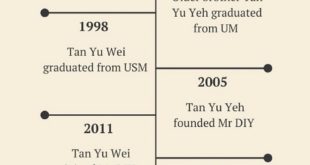Education Minister Lawrence Wong, who co-chairs the governmental task force tackling Covid-19, announced today (20 October) that Singapore may enter Phase 3 of its reopening by the end of this year.
This will only happen if community cases remain low. If new clusters emerge, the timeline may have to be pushed back, he said.
When Phase 3 comes around, gatherings outside of homes could be increased from five to eight people. The same goes for home visitors, allowing larger families to gather.
In addition, capacity limits in venues such as museums, places of worship and wedding receptions may be increased, with multiple zones of 50 persons allowed.
Conditions Must Be Met To Enter Phase 3
Phase 3 will be the final phase of the economy reopening, so Singapore has to continue to keep its guard up to meet several key conditions.
Firstly, Singaporeans will still have to stick to safe management measures, including small group sizes, safe distancing, and exercising social responsibility.
Next, COVID-19 testing will be carried out on a larger scale to allow more activities to resume.

Currently, antigen rapid testing is being piloted under a new scheme. Participants in some mass events will have to take this test and obtain a negative result before they are allowed to enter.
Results can be generated within 30 minutes, and the tests can be conducted either at the event venue or off-site at a separate testing facility.
For tests done off-site, participants have to show a certificate showing a negative test result, which is valid for a 24-hour timeframe that includes the duration of the event.
While the tests are cheaper and yield quicker results, it also has a lower accuracy. This means that false positives could happen and safe-management measures should still be in place.
According to MOH, the large-scale events will be identified by the Government from mid-October to December this year, and will include business-to-business events, wedding receptions, live performances and sports events.
“If these pilots prove successful, MOH will assess how to make these tests available for more widespread use,” the ministry added.
Lastly, more venues such as movie theatres will require people to check in to SafeEntry using the TraceTogether app or tokens.
All these measures will be implemented progressively, depending on the local and global situation, said Health Minister Gan Kim Yong.
Bars, KTVS, Nightclubs Likely To Remain Closed

However, nightlife settings deemed as higher-risk such as bars, karaoke lounges and nightclubs are likely to remain closed even at the start of Phase 3.
Mr Wong reasoned that people are in close proximity to one another within an enclosed space in these locations so large clusters may break out, as seen in other countries.
On that note, the authorities are planning to roll out limited pilot programmes to help the nightlife industry reopen safely.
Mr Wong said that the government will put in place measures to help business operators and owners to exit and pivot to new areas, adding that he will share more details of the assistance package on a later date.
The Health Ministry stressed that Phase 3 does not mean a return to pre-COVID-19 days. It will entail new ways of working and living, until the world has the virus under “tight control”.
It added that Singaporeans have to be prepared to stay in Phase 3 for a prolonged period, potentially more than a year.
Phase 3 will also not be static, it said. If more enablers can be put in place, there is scope for further reopening and scaling up of activities during that phase.
The journey to distributing a safe and effective vaccine will take a long time, so we have to prepare ourselves for the long haul.
“Phase 3 is not a declaration of victory, and all of us should go around celebrating and forget about the measures,” said Mr Gan.
“It’s a milestone, that we are saying we have now put in place reasonable measures and safeguards, and we should continue to retain these safeguards.”
Featured Image Credit: Ministry of Communications and Information



